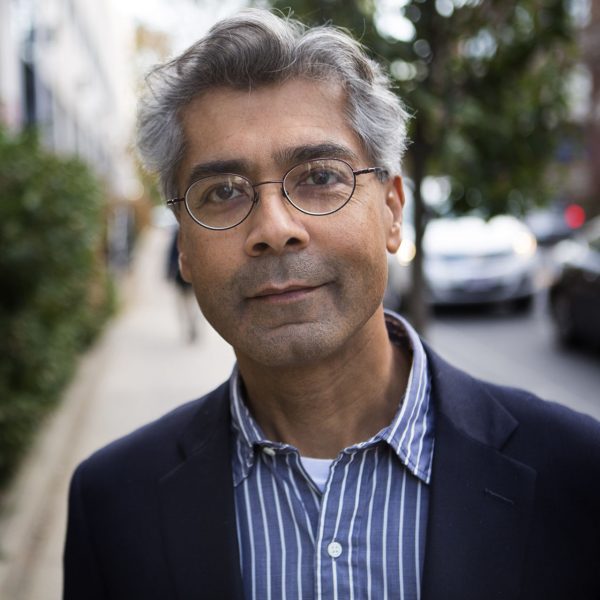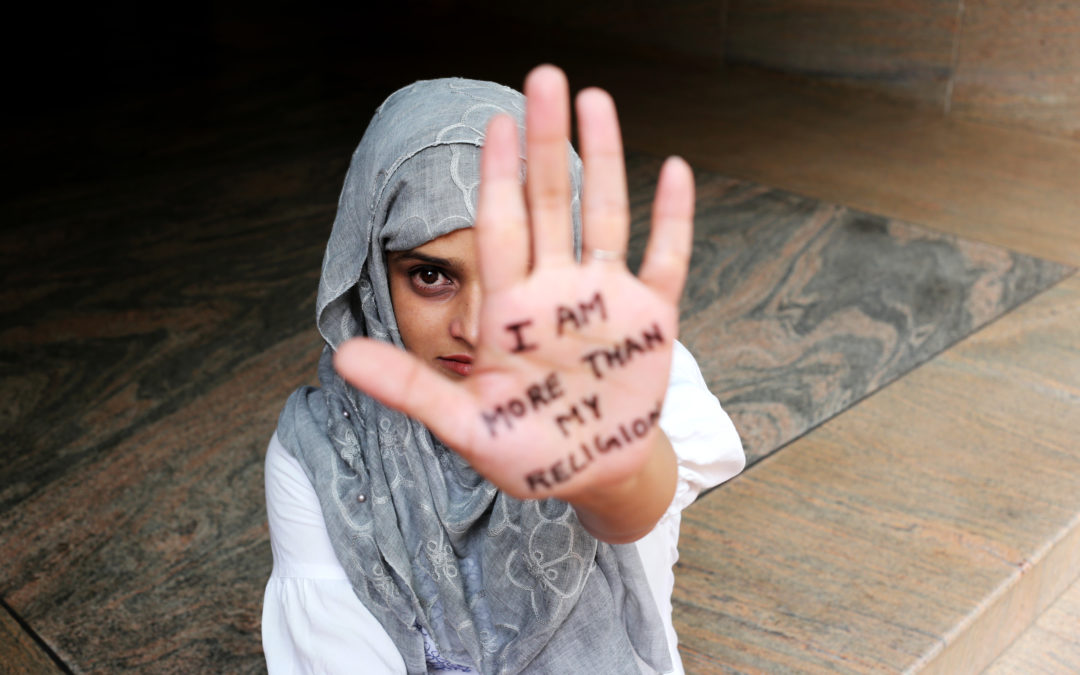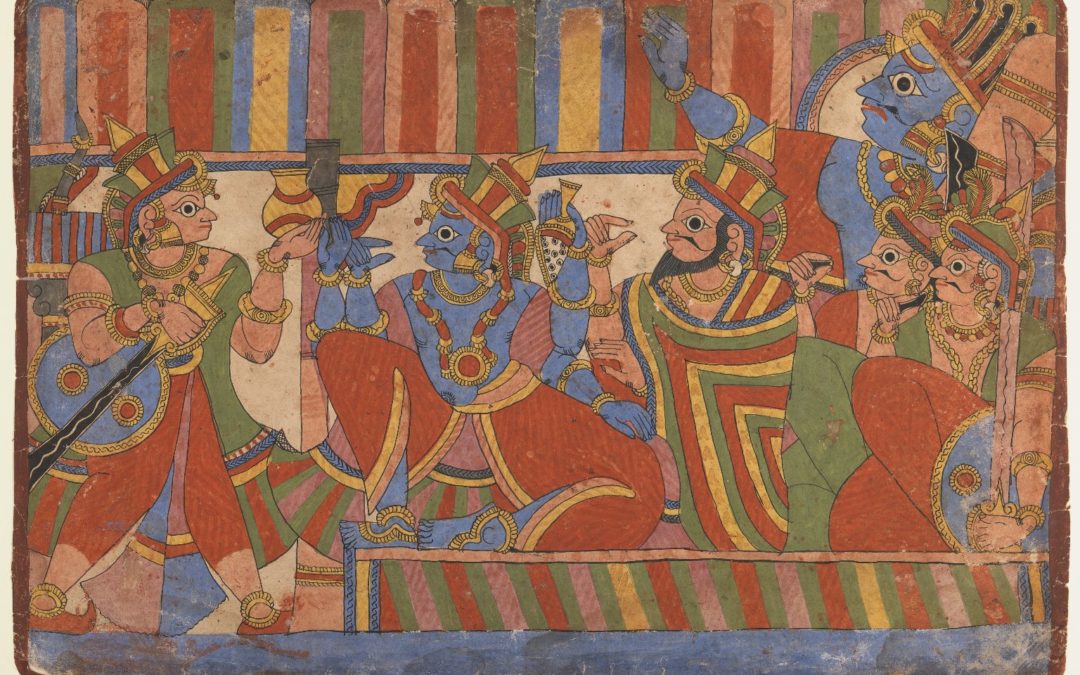On the Healing Properties of Ayurveda and AYUSH Medicine: Professor Darshan Shankar Previews Dec. 7 Event



Last week, the Harvard community had the opportunity to virtually meet the Mittal Institute’s two newest VAF artists – Bunu Dhungana and Pragati Jain – through their Art Exhibition: Women in South Asia: Expectations, Burdens and Obligations. Both artists shared their motivations, their craft, and their creations in moving, personal reflections (the full event video is above). As VAFs, these two mid-career artists from South Asia are spending the semester at Harvard, engaging with faculty and students, participating in art exhibitions, and completing research projects. The Mittal Institute checked in with Bunu Dhungana to learn more about her artistic motivations.

The Mittal Institute’s Faculty Director, Prof. Tarun Khanna, announced the appointment of Hitesh Hathi as Executive Director. He will join the Institute on Dec. 7, 2021. In his new role, Hathi will lead the Mittal Institute’s efforts to strengthen connections between Harvard and South Asia, providing new and innovative ways for faculty, students, and in-region scholars to deepen knowledge, understanding, and debate around the region’s most critical issues. He will lead teams in both Cambridge and Delhi and will be instrumental in continuing to cultivate signature interdisciplinary research at the Institute. He will also work closely with donors, partner organizations, and senior management at Harvard.

Rahul Mehrotra—practicing architect, urban designer, and educator—recently released a new book, entitled “The Kinetic City & Other Essays.” The book presents Rahul’s writings over the last thirty years and illustrates his long-term engagement with and analysis of urbanism in India.

RMA Architects 1990-2020. Curated by Kaiwan Mehta. A project produced by Goethe-Institut / Max Mueller Bhavan and the Architecture Foundation. The exhibition will show at Gallery MMB, Goethe-Institut / Max Mueller Bhavan Mumbai from 27 October to 31 December, 2021. Monday to Saturday, 11:00 am to 7 pm.

Last week, the Harvard community had the opportunity to virtually meet the Mittal Institute’s two newest VAF artists – Bunu Dhungana and Pragati Jain – through their Art Exhibition: Women in South Asia: Expectations, Burdens and Obligations. Both artists shared their motivations, their craft, and their creations in moving, personal reflections (the full event video is above). As VAFs, these two mid-career artists from South Asia are spending the semester at Harvard, engaging with faculty and students, participating in art exhibitions, and completing research projects. The Mittal Institute checked in with Pragati, to learn how her experience at Harvard is transpiring and what projects she is working on. An interview with Bunu will be forthcoming in December.

The Silk Road – an ancient network of international trade routes, home to diverse culture and traditions – has long been the subject of interest for LMSAI Affiliate Hasna Moudud. Over the past several years, she has journeyed on and researched the Silk Road’s connections to South Asia. In an upcoming Mittal Institute seminar, “Winds of Change: The Silk Road to South Asia,” on Wednesday, November 17 at 10:00am, Hasna will present findings from years of excursions and studies on the Southern Silk Road and the need to preserve this important part of the region’s heritage.

Conservation Science Research and Training Program, CoSTAR, aims to build up a temper of scientific studies for the conservation of art objects in India in conjunction with art historical studies. The three-year program is a collaboration between the Mittal Institute, Harvard University, Harvard Art Museums, and the Chhatrapati Shivaji Maharaj Vastu Sangrahalaya, Mumbai. Launched in December 2020, CoSTAR is envisioned as a series of theory and practical modules covering various topics in Conservation Science.

The Mittal Institute’s Delhi Office has long been focused on fostering collaborations – both in-country and beyond. They recently had a visit from S.V. Subramanian, a Professor of Population Health and Geography at Harvard University, and chair of the Faculty Advisory Group for the Center for Geographic Analysis at Harvard University. He is also the Principal Investigator of the India Policy Insights program, based out of the Geographic Insights lab at Harvard. This interdisciplinary research lab uses fine-grained data to bring important insights and accountability to policy actions. Professor Subramanian is based at the LMSAI Delhi office while he works on the program, where he is building collaborations with stakeholders, including the government of India.

The Lancet Citizens’ Commission on Reimagining India’s Health System partnered with the Centre for Health Equity, Law and Policy to present a joint webinar on the interlinkages between right to health and universal health coverage. The panel discussed the right to health as a foundational framework for design and implementation of universal health coverage, emphasizing marginalized contexts, and social determinants of health.

Nell Shapiro Hawley ‘11, a scholar of the Mahābhārata and its early iterations in Sanskrit poetry and drama, is the Preceptor in Sanskrit in the Harvard University Department of South Asian Studies and current Ph.D candidate in South Asian Languages and Civilizations at the University of Chicago. She recently released a new book, Many Mahābhāratas (SUNY Press), which she co-edited with Sohini Sarah Pillai. The volume is an introduction to the spectacular and long-lived diversity of Mahābhārata literature in South Asia. The Mahābhārata, with roughly 1.8. million words, is the longest epic poem known. The Mittal Institute sat down with Nell to learn more about her research, and the importance of the book to the landscape of South Asian literature.

Aakrity Madhan, a Masters of Design Studies candidate in the Harvard Graduate School of Design, received an LMSAI student grant to carry out an in-country study of India’s construction and demolition waste. Her project, “Circularity in Construction and Demolition Waste Management,” explored the life-cycle of waste, and offered some suggestions to lesson its climate impact. She shares her findings in a reflection.